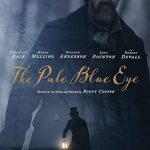Chuck says:
There’s no question that the message in Darren Aronofsky’s “The Whale” is vital and sincere. Unfortunately, the narrative path the director and writer Samuel D. Hunter take to deliver it at times undercuts its credibility. Be that as it may, the performance from Brendan Fraser as the troubled teacher at the center of the story is an astonishing feat, one that keeps you riveted despite the vagaries of the plot, moments that threaten at every turn to break the spell the dedicated actor so brilliantly casts.
Adapted from Hunter’s semi-autobiographical play, the story is a study of self-destruction as an obese English teacher named Charlie (Fraser) has gone into hiding, eating himself to death. He maintains his residence by teaching on-line courses, never turning on his camera so that his students might see him, though he implores them to express themselves honestly in their writing. Charlie’s aversion to the truth is made manifest by his behavior, something his nurse Liz (Hong Chau), the sister of his male lover who committed suicide, is trying to save him from. The guilt and remorse he is feeling stems not only from the tragic end of his romantic relationship but also from the fact that he left his wife Mary (Samantha Morton) and daughter Ellie (Sadie Sink) to pursue it, a decision he’s come to regret.
There’s nothing inherently wrong with this premise but the narrative devices Hunter uses smack of convenience and at times are disingenuous. Thomas (Ty Simpkins), a young missionary from the New Life Church who randomly knocks on Charlie’s door and becomes obsessed with saving his soul, is a character that simply doesn’t ring true. Hunter would be better off having him simply say “I’m a Narrative Conceit” than to pretend otherwise, his presence and constant reappearances obvious in what the writer is pursuing. Equally curious is the connection between the church Thomas represents, Charlie’s lover and Liz. It too suffers from a sense of expediency rather than seeming to be a development that would occur naturally rather than at the whim of the writer. A bit of finesse in these areas would have gone a long way towards legitimizing the story.
And while it’s logical that Ellie would be mad at her father, her incessant petulance is far too much, Sink giving a shrill one-note performance that proves grating rather than sympathetic. A scene showing a bit of vulnerability is necessary to humanize the character. As for the connection to “Moby Dick” that occurs, it’s a forced metaphor that doesn’t hold water. Subtlety is a forgotten approach in this film.
Despite these flaws, there’s no getting beyond Fraser’s performance. It would be tempting to say the prosthetics employed do most of the heavy lifting, but the actor pulls off the amazing feat, not becoming completely consumed by the necessary transformative appliances. Using the few tools left to him – his eyes, face, and voice – he reminds us of the damaged soul trapped beneath the results of Charlie’s self-harming behavior. The desperation he conveys is effective and poignant, Fraser investing all he can in every moment. It is remarkable to witness.
Are the script’s faults so great they negate Fraser’s good work and the film’s noble intentions? Obviously, thar depends on the individual viewer. However, what I find ironic is that the main theme of the film is the necessity of honesty to ourselves and our interactions with others. Most of the characters wrestle with a sense of denial, none of them willing to come to terms with their problems until the direst of circumstances occur. That so much of the plot hinges on calculated circumstances runs counter to this. “The Whale’s” improbable story doesn’t ring true, yet Fraser’s performance does and for some, that may be enough.
2.5/4.0




